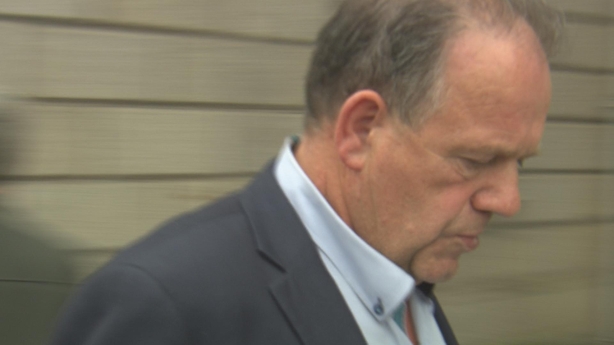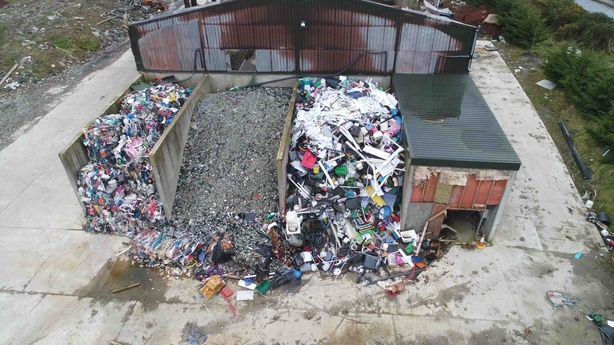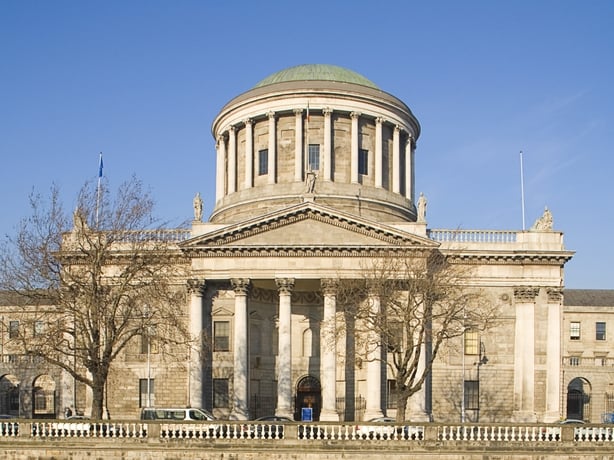In the High Court today senior counsel for Donegal County Council, Richard Lyons, applied to have Jim Ferry sent to prison for failing to fully cooperate with efforts to recoup money.
Mr Lyons said his cooperation was needed to help repay taxpayers who will have to foot the multi-million euro bill for what he called "environmental carnage" caused by the illegal dump Mr Ferry was responsible for on the banks of Lough Swilly.
Mr Ferry and his companies, Ferrys Refuse Collection Ltd and Ferrys Refuse Recycling Ltd, were one of Donegal’s largest waste operators until late November 2016 when his facility at Rossbracken was raided and in excess of 21,000 tonnes of rubbish was estimated to be illegally buried there.

Last year he left the Republic of Ireland and moved north to Strabane to avoid an arrest warrant issued by the High Court, before surrendering in May this year and he later apologised for years’ of waste offences and for frustrating the Council’s work. His activities featured in the RTÉ Investigates – Ireland’s Wild Waste documentary.
Watch RTÉ Investigates - Ireland's Wild Waste here.
Today, in the High Court Mr Justice Max Barrett again found Mr Ferry to be in contempt of court. This time it was for failing to comply with orders to explain how much he made from his activities and what he did with is income.
But the former waste collector was given until January to hand over all information requested by a forensic accountant employed by Donegal County Council before a decision is reached on whether he should be sent to prison.
Mr Ferry has denied that his illegal activity led to profits in excess of €3.6m. He said while it was done to "remain competitive" it was done "without any financial reward" to him or his companies.
In July, numerous records were handed over by Mr Ferry to a forensic accountant engaged by the Council, Gerard Murray.
A report by Mr Murray read out in Court revealed Mr Ferry’s companies had earned more than €10m from collecting waste in Donegal during a four year period up to 2016.
During this time Mr Ferry earned a salary of less of then €30,000 per year from running the operation but had personal debts that cost more than €55,000-a-year to service.
The Court heard that 700-pages of material from the accounts and affairs of Mr Ferry and his businesses were reviewed by Mr Murray.
Mr Murray said these were incomplete. He was left with outstanding questions and said he had not "received full cooperation from Mr Ferry" to explain a number of discrepancies in the financial records.
"It is my opinion that Mr Ferry has not provided evidence to sustain the position that the illegal dumping was done without financial benefit to Mr Ferry or his companies," he said.

The outstanding issues included a lack of evidence as to how Mr Ferry found money to service his personal debts; the details of rental income that appeared in his accounts; statements from a credit card account that did not appear to have been disclosed and the source of money used to settle a six-figure tax default in 2014.
The accountant also wanted the records of banks accounts Mr Ferry opened in Northern Ireland and Morecambe in England and the complete details from the €400,000 sale of his customer list to another operator in 2017 and the €75,000 he was paid when he sold his skip business to another operator.
Mr Murray had also looked for information on the winnings Mr Ferry received from race horses that ran in his colours.
The Court was told these questions were all put to Mr Ferry’s solicitors on August 3 but there was no reply.
The forensic accountant also said the details of waste handled by Mr Ferry’s companies did not account for an estimated 21,000 tonnes of material that is believed to be buried on his Rossbracken property, outside Letterkenny.
Mr Ferry had provided sample waste tonnage figures for four months. Bur Mr Murray said if the extra waste that could be identified in these figures was actually responsible for the illegal deposits it would have taken at least 20 years to accumulate the levels that are believed to be hidden on the property.
The court also heard that last Friday one of his companies, Ferrys Refuse Recycling Ltd, was put into liquidation. It owes more than €230,000 and does not have any assets.

Counsel for Mr Ferry, Francis Treanor, objected to the application to jail his client and said he had personally visited Donegal to see the situation on the ground.
He said Mr Ferry was trying to comply with the Court orders in every way that he could.
"He is not trying to hide anything from the Court and I simply cannot put that any stronger," he said.
Mr Treanor said his client was working with his accountants to provide the necessary information and he asked the Court for time to deal with the issues raised in the forensic accountant’s report.
Affidavits filed on behalf of Mr Ferry said he had more than €150,000 seized by the Criminal Assets Bureau, following raids on properties linked to him and his companies, and Donegal County Council can have this when it is released.
The Court heard Mr Ferry was broke and intended to apply for bankruptcy and social welfare.
Mr Justice Barrett on the basis of Mr Murray’s report he did not accept Mr Ferry had cooperated and he found him to be in contempt of court.
"It is clear to me Mr Ferry is in breach of the Court order," he said.
He put the case back until January and warned Mr Ferry he will be sent to jail on that day if he has not complied and provided all the information necessary.

